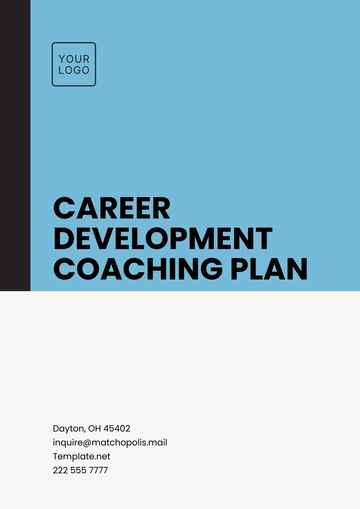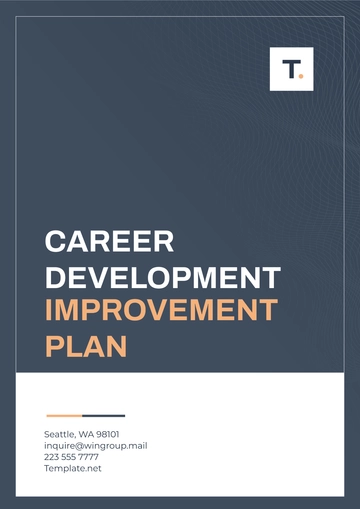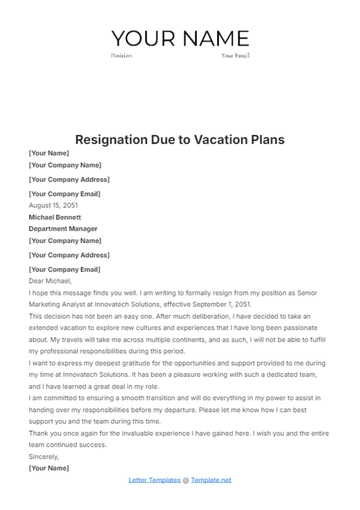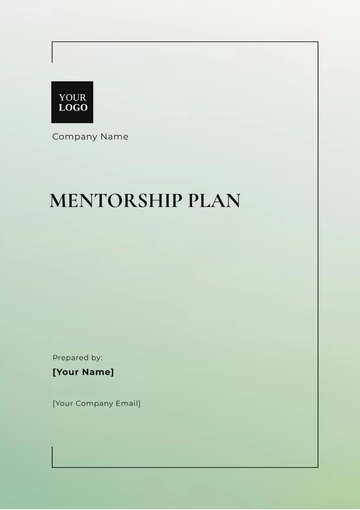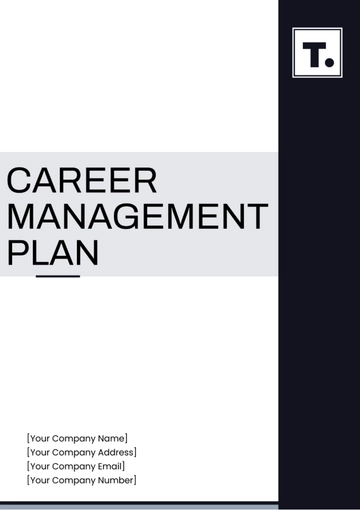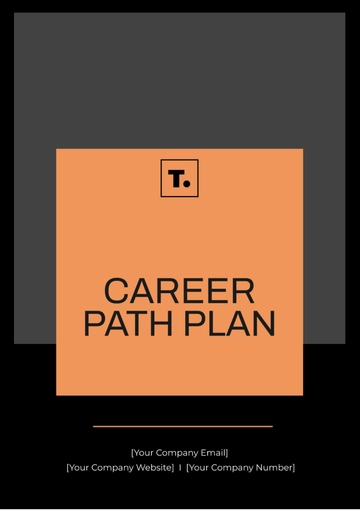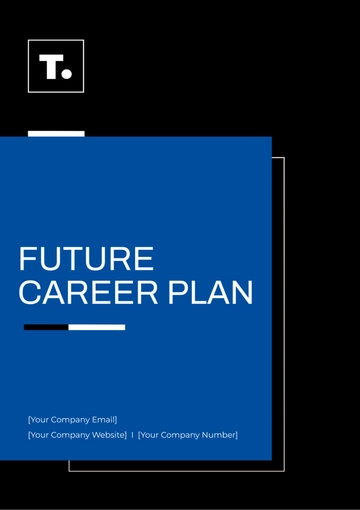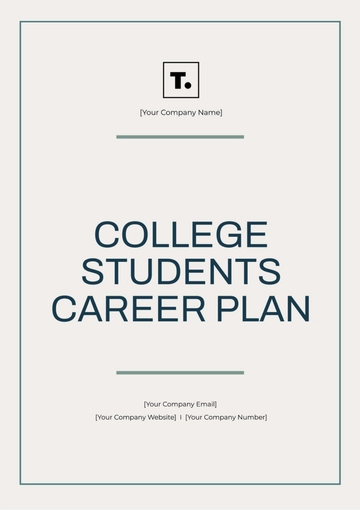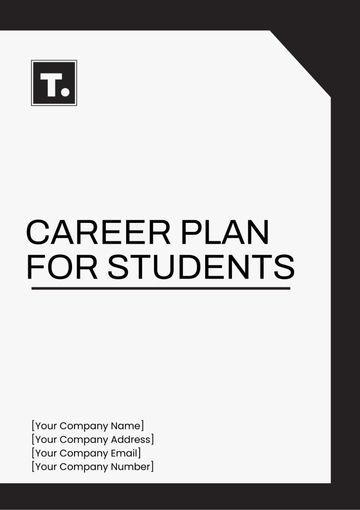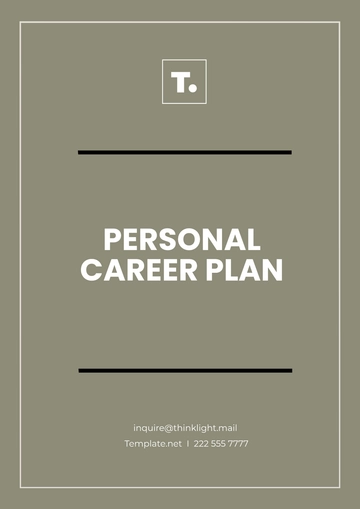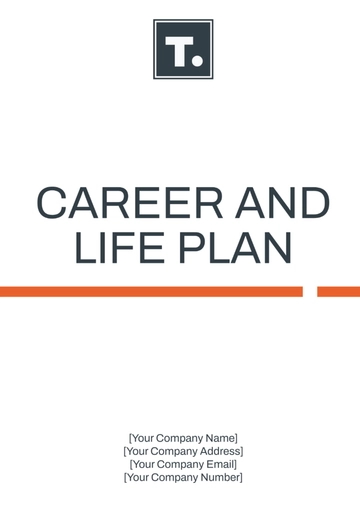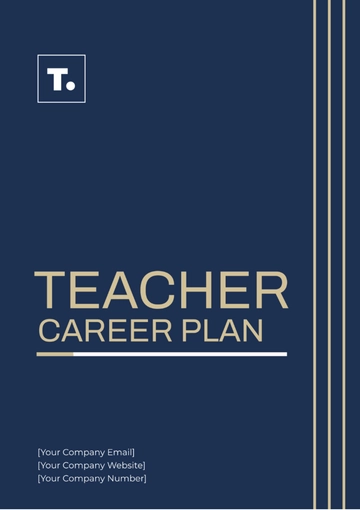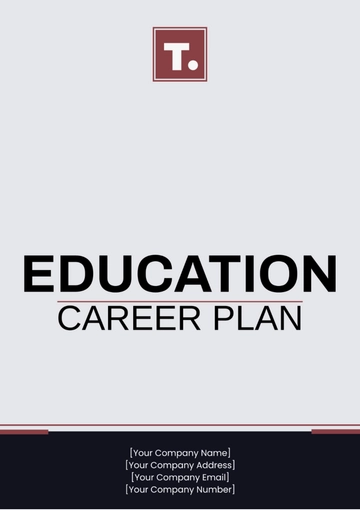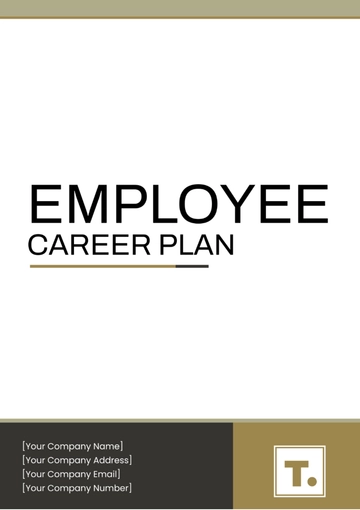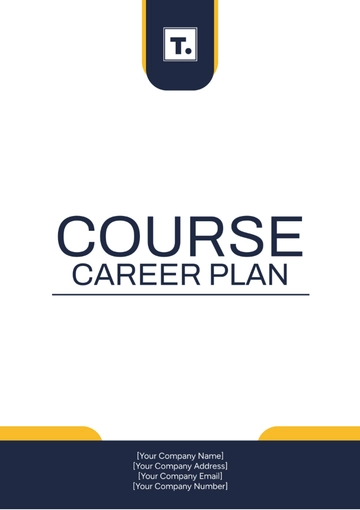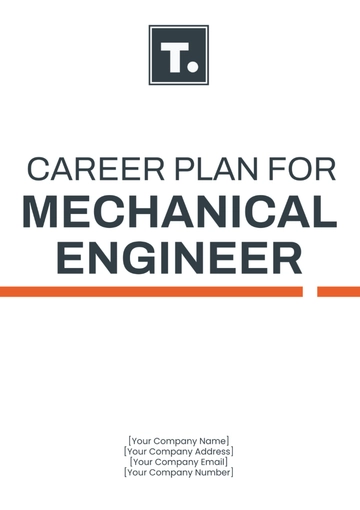Free After High School Plan

I. Introduction
After high school, planning the next steps in life is crucial for laying the groundwork for future success. Today's world presents countless opportunities, making it important to carefully consider your interests, skills, and potential career paths. This plan provides a structured approach to transitioning from high school to the next phase, whether it be higher education, vocational training, or entering the workforce. By creating a clear roadmap, you can navigate the myriad choices ahead with confidence and clarity.
This comprehensive plan aims to help you identify your goals, understand the steps needed to achieve them, and stay motivated on your journey. It encompasses various facets of your future, such as education, career, personal development, and financial planning. Recognizing the significance of each aspect will enable you to make informed decisions and set realistic, achievable targets. By breaking down your ambitions into manageable steps, this plan ensures that you remain focused and on track, even when faced with challenges.
Embarking on this blueprint toward a successful future involves thoughtful preparation and a proactive mindset. By aligning your aspirations with actionable plans, you can build a strong foundation for long-term achievement. This plan not only addresses immediate post-high school goals but also encourages ongoing personal growth and adaptation to changing circumstances. Let's work together to create a vision for your future that is both inspiring and attainable, setting the stage for a fulfilling and prosperous life beyond high school.
II. Self-Assessment
Understanding yourself is the cornerstone of effective post-high school planning. By evaluating your interests, skills, and values, you gain insight into what careers and paths may suit you best. Various tools and activities can facilitate this self-assessment process, providing valuable feedback and helping you align your goals with your intrinsic strengths and passions. Engaging in these activities can guide you in making decisions that resonate with your personal and professional aspirations, setting a solid foundation for your future.
Tool/Activity | Description | Purpose |
|---|---|---|
Personality Tests | Assess various aspects of your personality, such as the Myers-Briggs Type Indicator (MBTI). | Identify personality traits and preferences. |
Career Interest Surveys | Explore your career interests and match them with potential occupations. | Discover careers that align with your interests. |
Skills Assessment Tools | Evaluate your current skills and identify areas for improvement. | Understand your strengths and areas for development. |
Reflective Journaling | Write about your experiences, achievements, and aspirations. | Gain clarity on your goals and personal growth. |
Discussion with Mentors and Family | Seek advice and feedback from trusted mentors, teachers, and family members. | Obtain different perspectives and support. |
Engaging with these tools and activities will provide a comprehensive view of your potential and help you make well-informed decisions about your future.
III. Education and Training
Determining the appropriate education or training path is a critical step in achieving your career goals. After completing a thorough self-assessment, you'll have a clearer understanding of your interests, skills, and values, which will guide you in selecting the most suitable educational route. There are several options to consider, each with its own set of advantages and potential drawbacks. Evaluating these options carefully will help you make an informed decision that aligns with your long-term aspirations.
Four-Year Colleges offer a comprehensive and broad-based education, providing students with the opportunity to explore a wide range of subjects and gain in-depth knowledge in their chosen field of study. These institutions often offer a variety of extracurricular activities, research opportunities, and study abroad programs that can enrich your college experience. Graduating with a bachelor's degree can open doors to numerous career opportunities and is often a prerequisite for advanced studies. However, four-year colleges can be expensive, and students may incur significant debt if they rely heavily on loans.
Community Colleges are an affordable alternative to four-year colleges, offering two-year associate degree programs that can be transferred to a four-year institution. This pathway allows students to complete general education requirements at a lower cost before transferring to complete their bachelor's degree. Community colleges also offer vocational and technical programs that prepare students for immediate entry into the workforce. The downside is that community colleges may not provide the same breadth of extracurricular activities or research opportunities as four-year institutions.
Trade Schools focus on providing hands-on skills and vocational training for specific careers. These programs are typically shorter in duration and more affordable than four-year colleges, allowing students to enter the workforce quickly. Trade schools offer training in fields such as automotive technology, cosmetology, electrical work, and healthcare, among others. Graduates often find employment in well-paying jobs that require specialized skills. However, the scope of education is narrower, and there may be less flexibility to change career paths later on without additional training.
Certificate Programs offer short-term courses that provide specific skills for certain jobs. These programs can be a good option for individuals looking to enhance their qualifications or switch careers without committing to a full degree program. Certificates are available in various fields, including information technology, healthcare, business, and more. They are often more affordable and quicker to complete than degree programs. The main limitation is that certificate programs may not provide the comprehensive education that some employers or advanced positions require.
When deciding on your educational path, it is crucial to consider the financial aspect. Investigate scholarships, grants, work-study programs, and other financial aid options to help fund your education. Scholarships and grants are particularly valuable as they do not need to be repaid, reducing the financial burden. Work-study programs provide part-time employment opportunities for students to earn money while gaining work experience related to their field of study. Additionally, consider federal and private student loans, but be mindful of the long-term implications of debt.
IV. Career Exploration
Career exploration is a crucial step in planning your future. It involves researching various professions to understand what they entail, including the work environment, required skills, job outlook, and average salaries. By utilizing a range of resources and activities, you can gather valuable insights that will help you make informed decisions about your career path.
To start, you should develop a list of potential careers based on your self-assessment and research. This list should include professions that align with your interests, skills, and values. Once you have a comprehensive list, narrow down your options by considering factors such as job stability, work-life balance, and growth opportunities. This focused approach will help you target your education and training efforts toward a specific career path.
List of Resources for Career Exploration
Career Guidance Websites
O*NET Online
Bureau of Labor Statistics (BLS) Occupational Outlook Handbook
CareerOneStop
LinkedIn Career Explorer
Glassdoor
Indeed Career Guide
Informational Interviews
Alumni Networks
Professional Associations
LinkedIn Connections
Job Shadowing
Local Businesses
School Career Centers
Community Organizations
Internships
internship.com
Handshake
Local Companies
Nonprofit Organizations
Steps for Self-Assessment and Research
Identify Interests
Reflect on activities and subjects you enjoy.
Take career interest surveys.
Evaluate Skills
List your strengths and weaknesses.
Use skills assessment tools.
Determine Values
Consider what is important to you in a job (e.g., work-life balance, job security).
Research Careers
Use career guidance websites to explore various professions.
Gather information on job outlook, required education, and average salaries.
Conduct Informational Interviews
Reach out to professionals in fields of interest.
Ask about their experiences, daily tasks, and career paths.
Participate in Job Shadowing
Spend time observing professionals at work.
Gain firsthand experience of different work environments.
Seek Internships
Apply for internships in your areas of interest.
Gain practical experience and build your network.
Narrow Down Options
Compare potential careers based on your self-assessment and research.
Consider factors such as job stability, growth opportunities, and work-life balance.
Set Goals
Define short-term and long-term career goals.
Plan the education and training needed to achieve these goals.
By following these steps and utilizing available resources, you can effectively explore various career options and make informed decisions about your future career path.
V. Personal Development
Personal development is a cornerstone of both academic and career success. It involves the continuous process of enhancing your skills, traits, and qualities to meet your goals and overcome challenges. Engaging in activities that promote personal growth will prepare you for the demands of higher education and the professional world.
Building Soft Skills
Communication
Effective communication is vital in all aspects of life. Practice your verbal and written communication skills by participating in debates, presentations, and writing assignments. Joining a public speaking club or taking a communication course can also be beneficial.
Teamwork
Collaboration is essential in both academic projects and professional settings. Engage in group activities, sports teams, or club organizations to learn how to work effectively with others. These experiences will teach you the value of cooperation, compromise, and collective effort.
Leadership
Leadership skills are crucial for guiding teams and making informed decisions. Take on leadership roles in student organizations, volunteer groups, or part-time jobs. These positions will help you develop confidence, decision-making abilities, and responsibility.
Problem-Solving
Critical thinking and problem-solving are key skills for tackling challenges. Participate in activities that require strategic thinking, such as chess clubs, coding competitions, or science fairs. Learning to approach problems methodically and creatively will serve you well in any field.
Enhancing Work Ethic and Time Management
Work Ethic
A strong work ethic is characterized by dedication, discipline, and a commitment to excellence. Develop this trait by setting high standards for yourself, staying focused on your goals, and maintaining a positive attitude even when tasks are challenging.
Time Management
Effective time management allows you to balance your responsibilities and achieve more. Use planners or digital tools to organize your schedule, set priorities, and allocate time for studying, extracurricular activities, and relaxation. Learning to manage your time efficiently will reduce stress and increase productivity.
Building Resilience
Resilience is the ability to bounce back from setbacks and adapt to change. Cultivate resilience by setting realistic goals, maintaining a positive mindset, and seeking support from mentors, friends, and family. Embrace challenges as opportunities for growth and learn from your experiences.
Continuous Growth
Personal growth is a lifelong journey. Stay curious and open to new experiences. Seek feedback, reflect on your progress, and continuously strive to improve. Engaging in personal development will not only enhance your academic and career prospects but also contribute to your overall well-being and fulfillment.
By focusing on these areas of personal development, you will build a strong foundation for success in both your educational and professional endeavors.
VI. Financial Planning
Understanding your financial situation and planning accordingly is critical as you transition from high school to the next phase of life. Sound financial planning provides stability and allows you to focus on your educational and career aspirations without undue stress.
Creating a Budget
Start by creating a comprehensive budget that outlines your expected income and expenses. Anticipated income sources might include part-time work, financial aid, scholarships, and family contributions. On the expense side, account for tuition, books, supplies, housing, food, transportation, and personal items. A well-structured budget helps you manage your money effectively and avoid unnecessary debt.
Managing Student Loans
Educate yourself about student loans, including different types, interest rates, and repayment options. Federal student loans often offer more favorable terms than private loans, including lower interest rates and flexible repayment plans. Familiarize yourself with the Free Application for Federal Student Aid (FAFSA) process to determine your eligibility for federal aid. Understanding the terms and conditions of any loan you take on will help you manage your debt responsibly.
Financial Aid and Scholarships
Research scholarships and grants extensively. These forms of financial aid do not need to be repaid and can significantly reduce your educational expenses. Many organizations offer scholarships based on academic performance, extracurricular activities, or specific fields of study. Apply for as many scholarships as possible to increase your chances of receiving aid.
Setting Financial Goals
Establish clear financial goals to guide your saving and spending habits. Short-term goals might include saving for textbooks or a laptop, while long-term goals could involve building an emergency fund or saving for a car. Setting financial goals helps you stay focused and disciplined in managing your money.
Savings and Emergency Funds
Develop a habit of saving regularly, even if it’s a small amount. Aim to build an emergency fund that covers three to six months of living expenses. This fund provides a financial safety net in case of unexpected expenses or emergencies. Utilize savings accounts that offer competitive interest rates to maximize your earnings.
Learning About Investments
Consider learning about basic investment principles to grow your wealth over time. Starting early, even with modest investments, can benefit you in the long run due to the power of compound interest. Look into low-risk investment options such as savings bonds, mutual funds, or retirement accounts like Roth IRAs.
Managing Credit and Debt
Understand the basics of credit and how to manage it responsibly. Building a good credit score is important for future financial endeavors such as renting an apartment, securing a loan, or even job applications. Avoid unnecessary debt and always make timely payments to maintain a healthy credit history.
Financial Literacy Education
Take advantage of resources that can enhance your financial literacy. Many websites, books, and courses offer valuable information on budgeting, saving, investing, and debt management. The more you know about managing your finances, the better equipped you will be to make sound financial decisions.
By focusing on these aspects of financial planning, you can achieve a stable financial foundation that supports your educational and career goals, allowing you to pursue your ambitions with confidence and security.
VII. Implementation Timeline
Creating a timeline helps in breaking down your plan into actionable steps and keeping you on track. Organize your timeline by year, month, or even week, depending on your specific goals and deadlines. This ensures you stay focused and make consistent progress towards your post-high school objectives.
Below is a sample implementation timeline format:
Time Period | Action Items |
|---|---|
Year 1 |
|
Year 2 |
|
VIII. Conclusion
This plan serves as a thorough guide to help you navigate the important transition from high school to the next stage of your life. It emphasizes the importance of self-assessment, education and training, career exploration, personal development, and financial planning. By following this structured approach, you can make informed decisions that align with your goals and set you on a path to success.
Remember, it's your journey, and while having a plan is essential, being flexible and open to new opportunities will only enhance your experiences. Stay motivated and proactive, and don't hesitate to seek guidance from mentors, teachers, and family members when needed. Your future is bright and full of possibilities!
- 100% Customizable, free editor
- Access 1 Million+ Templates, photo’s & graphics
- Download or share as a template
- Click and replace photos, graphics, text, backgrounds
- Resize, crop, AI write & more
- Access advanced editor
Help students plan for their future with the After High School Plan Template from Template.net. This editable and customizable template helps you create detailed and personalized post-graduation plans. Editable in our Ai Editor Tool, it offers a user-friendly experience, making it easy to tailor to individual student needs. Guide students towards success with this essential planning template.
You may also like
- Finance Plan
- Construction Plan
- Sales Plan
- Development Plan
- Career Plan
- Budget Plan
- HR Plan
- Education Plan
- Transition Plan
- Work Plan
- Training Plan
- Communication Plan
- Operation Plan
- Health And Safety Plan
- Strategy Plan
- Professional Development Plan
- Advertising Plan
- Risk Management Plan
- Restaurant Plan
- School Plan
- Nursing Home Patient Care Plan
- Nursing Care Plan
- Plan Event
- Startup Plan
- Social Media Plan
- Staffing Plan
- Annual Plan
- Content Plan
- Payment Plan
- Implementation Plan
- Hotel Plan
- Workout Plan
- Accounting Plan
- Campaign Plan
- Essay Plan
- 30 60 90 Day Plan
- Research Plan
- Recruitment Plan
- 90 Day Plan
- Quarterly Plan
- Emergency Plan
- 5 Year Plan
- Gym Plan
- Personal Plan
- IT and Software Plan
- Treatment Plan
- Real Estate Plan
- Law Firm Plan
- Healthcare Plan
- Improvement Plan
- Media Plan
- 5 Year Business Plan
- Learning Plan
- Marketing Campaign Plan
- Travel Agency Plan
- Cleaning Services Plan
- Interior Design Plan
- Performance Plan
- PR Plan
- Birth Plan
- Life Plan
- SEO Plan
- Disaster Recovery Plan
- Continuity Plan
- Launch Plan
- Legal Plan
- Behavior Plan
- Performance Improvement Plan
- Salon Plan
- Security Plan
- Security Management Plan
- Employee Development Plan
- Quality Plan
- Service Improvement Plan
- Growth Plan
- Incident Response Plan
- Basketball Plan
- Emergency Action Plan
- Product Launch Plan
- Spa Plan
- Employee Training Plan
- Data Analysis Plan
- Employee Action Plan
- Territory Plan
- Audit Plan
- Classroom Plan
- Activity Plan
- Parenting Plan
- Care Plan
- Project Execution Plan
- Exercise Plan
- Internship Plan
- Software Development Plan
- Continuous Improvement Plan
- Leave Plan
- 90 Day Sales Plan
- Advertising Agency Plan
- Employee Transition Plan
- Smart Action Plan
- Workplace Safety Plan
- Behavior Change Plan
- Contingency Plan
- Continuity of Operations Plan
- Health Plan
- Quality Control Plan
- Self Plan
- Sports Development Plan
- Change Management Plan
- Ecommerce Plan
- Personal Financial Plan
- Process Improvement Plan
- 30-60-90 Day Sales Plan
- Crisis Management Plan
- Engagement Plan
- Execution Plan
- Pandemic Plan
- Quality Assurance Plan
- Service Continuity Plan
- Agile Project Plan
- Fundraising Plan
- Job Transition Plan
- Asset Maintenance Plan
- Maintenance Plan
- Software Test Plan
- Staff Training and Development Plan
- 3 Year Plan
- Brand Activation Plan
- Release Plan
- Resource Plan
- Risk Mitigation Plan
- Teacher Plan
- 30 60 90 Day Plan for New Manager
- Food Safety Plan
- Food Truck Plan
- Hiring Plan
- Quality Management Plan
- Wellness Plan
- Behavior Intervention Plan
- Bonus Plan
- Investment Plan
- Maternity Leave Plan
- Pandemic Response Plan
- Succession Planning
- Coaching Plan
- Configuration Management Plan
- Remote Work Plan
- Self Care Plan
- Teaching Plan
- 100-Day Plan
- HACCP Plan
- Student Plan
- Sustainability Plan
- 30 60 90 Day Plan for Interview
- Access Plan
- Site Specific Safety Plan

